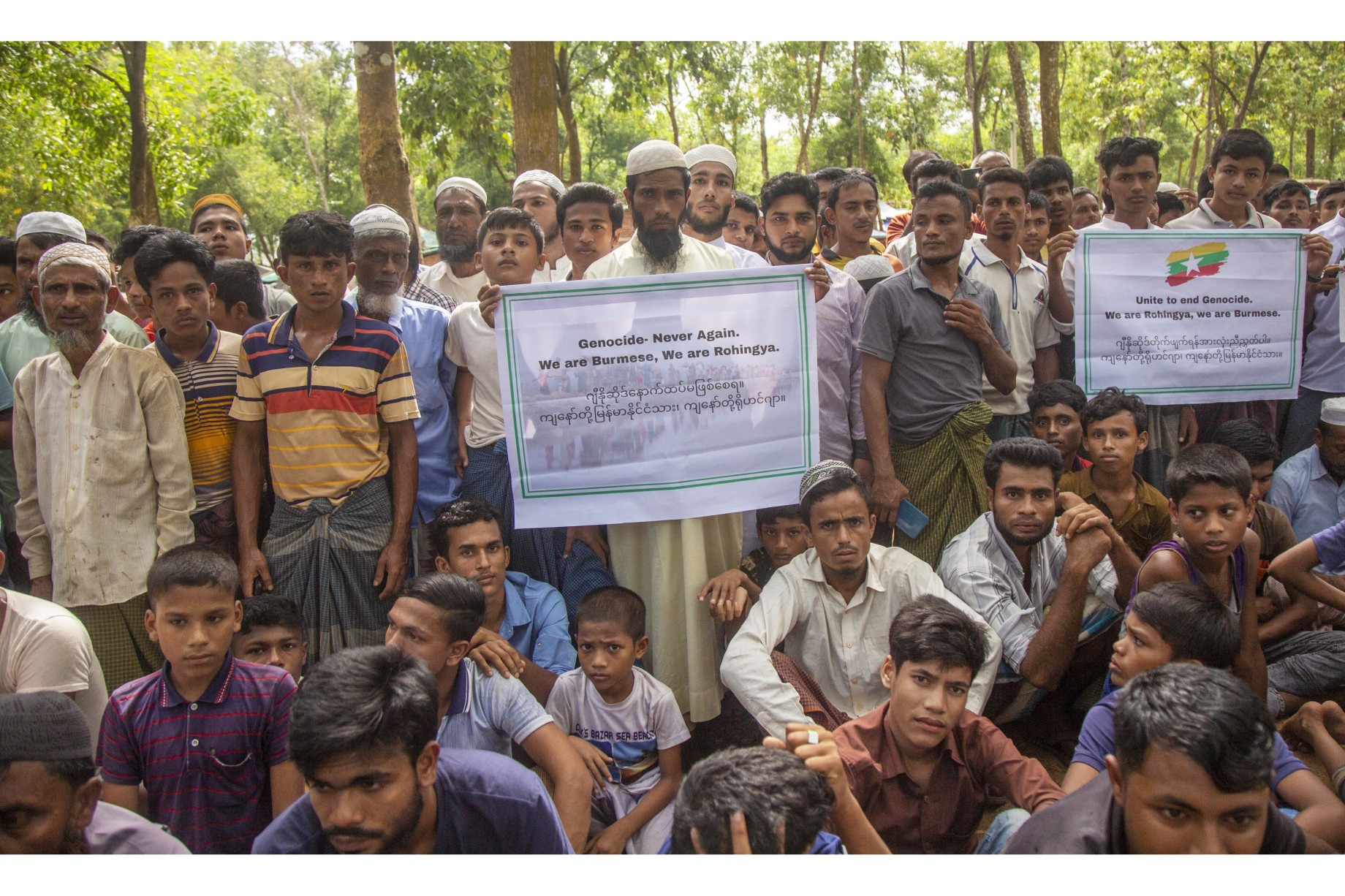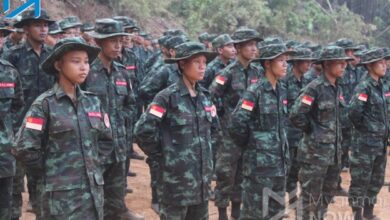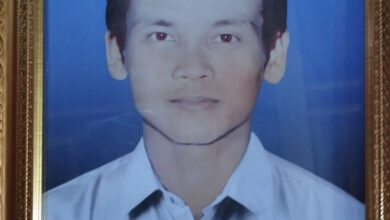
Some 150 Rohingya men and women being held inside Taung Kalay Prison, in the Karen (Kayin) State capital Hpa-an, have been exposed to severe health problems due to a lack of food and other basic necessities, according to two former detainees who witnessed their neglect by prison authorities.
The two ex-prisoners, who were recently released after serving months-long sentences, said that conditions inside the prison were especially harsh for the Rohingya, many of whom showed signs of malnutrition.
The problem, they said, was that unlike other prisoners, who typically have family members or others they can rely on to supplement the meagre supplies provided by the prison, the Rohingya are left to fend for themselves.
“It made me feel so bad when I saw them. They were boiling leaves that I had never seen before, which they had foraged to eat with their rice,” said one of the former prisoners.
“When I offered some of them even a tiny amount of fermented shrimp paste, tears came to their eyes,” he added, describing the extreme privation faced by the Rohingya prisoners.
The prison diet consists of rice and black tea for breakfast and rice and chickpea curry for lunch, with small portions of chicken or fish provided for dinner four days a week. On the other three days, only rice and watery morning-glory soup is served, according to the two prisoners.
“Even when there is meat in the meal, it’s just boiled meat. It doesn’t even have salt in it. They boil the meat, put it in a bucket, and give each prisoner one piece with broth,” said one.

Most of the Rohingya being held in the prison were arrested in Karen State while trying to escape the country by fleeing into neighbouring Thailand. As members of a Muslim minority that has been subjected to decades of discrimination inside Myanmar, many ultimately hoped to reach Malaysia.
Denied citizenship in their country of origin since the military first seized power in 1962, the Rohingya are not permitted to travel outside of their native Rakhine State. Since 2012, more than a million have fled to Bangladesh to escape intensifying persecution that culminated in genocidal “clearance operations” by the military five years ago.
Around two-thirds of the Rohingya detainees in the prison were men under the age of 30, according to the former prisoners who spoke to Myanmar Now. Most were held in two of the prison’s five dormitories, they said, while the 50 or so women were kept in a separate building housing an exclusively female dormitory.
In addition to a lack of food, most of the Rohingya prisoners also have only a few items of clothing to wear. This has resulted in many developing rashes and sores, said the two men. Exacerbated by malnutrition and a lack of medicine, many of these skin conditions have become almost unbearable, they added.
“Some could barely walk because of the boils on their feet. The boils were not dry, they were wet. I couldn’t even bear to look at the sores between their fingers and toes. And there was no one who could send them medicine,” said one former prisoner.
While some of the Rohingya prisoners were released—typically after serving six months to a year on immigration charges—more also came. According to the ex-prisoners, two trucks full of new Rohingya detainees arrived at the prison earlier this month.
Largely overshadowed by the turmoil that has engulfed the country since last year’s coup, the plight of the Rohingya remains as desperate as ever, and seems unlikely to improve under the current regime.
In March 2021, less than two months after seizing power, junta chief Min Aung Hlaing marked Armed Forces Day by touting the military’s recent “accomplishments.” Among them, he said, was its success in driving “kalar terrorists” out of Rakhine State—referring to the Rohingya by a derogatory term for Muslims.
![Resistance fighters holding heavy weapons ammunition in central Myanmar. (Photo: Freedom Revolution Force [FRF])](https://myanmar-now.org/en/wp-content/uploads/sites/5/2024/04/438869056_443267851680128_1706386881626943924_n-390x220.jpeg)


